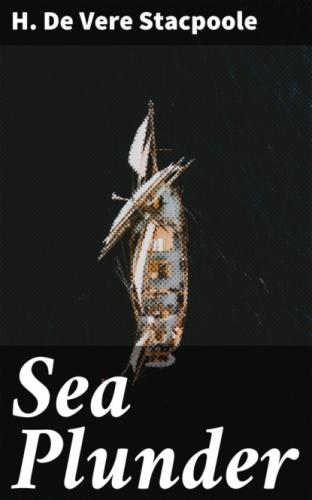H. De Vere Stacpoole
Sea Plunder
Published by Good Press, 2019
EAN 4064066232818
Table of Contents
IV THE SAILING OF THE “PENGUIN”
VI THE CREW’S SHARE OF THE SPOILS
PART I
THE BUCCANEERS
THE BUCCANEERS
I
THE CAPTAIN
Captain Blood used to come down to McGinnis’ wharf every afternoon to have a look round. The Captain was an Irishman of the black-haired, grey-eyed type from the west coast—a relic of the wreck of the Spanish Armada.
The Spanish strain in the Celtic nature makes for volcanic developments; and the Captain, from what we knew of him, formed no exception to this rule. He was known as “The Captain” tout court all along the front at San Francisco, from the China docks to Meiggs’ Wharf. He was a character. Scarcely forty years of age, he had done most things that a man could possibly do in the way of sea-and-land adventure. He had run guns in the Spanish-American War, dug for gold at Klondike with the first batch of diggers, lost two fingers of his left hand in a dust-up on the Chile coast, and two ships in a manner considered dubious by the Board of Trade. But he never had lost a friend, nor an enemy. Unlike most of his class, he had nothing of the amphibian about him. Straight and well set up, he always managed to keep a clean, well-groomed appearance even in the teeth of adversity.
The Captain was seated to-day on a mooring bitt, watching the freighters loading with grain and the tugs and Italian whitehalls passing on the blue water of the bay. He was down on his luck, had been for the last month, and was in a condition of humour with the world that would have lent him to any job from piracy to the captaining of a hay barge.
Owners had fought shy of him ever since his last deep-sea adventure. Capable and sober enough, he had earned a reputation for recklessness that was a bar to employment as fatal as a reputation for drink. There were no more Klondikes to be exploited, perfect peace reigned on the west American seaboard from Vancouver to Wellington Island, piracy was out of date, and every hay barge had its captain.
There seemed no prospect before him but either to go into the fo’c’sle or go on tramp, and as he sat on the mooring bitt, kicking his heels and watching the shipping, he was trying to decide which of these two prospects was the more hateful.
He had arrived at no decision on this point when he saw a figure approaching him. It was Billy Harman.
“Why, there you are!” said Billy. “Just the man I wanted to see. I looked into Sam Brown’s, and you weren’t there, and Sam said: ‘Try down on the wharves; the Captain is sure to be down on the wharves on the lookout for his ship.’ ”
“I’ll teach him to talk about me and my affairs,” said Blood. “Well, now you’ve found me, what have you got for me?”
“A ship,” replied Harman.
“Have you got it in your pocket?” said the Captain. “If so, produce it. A ship! And since what day have you turned owner?”
Mr. Harman produced a pipe and began to load it carefully and meditatively. His manner could not have been more detached had the Captain not been present.
Then, having lit the pipe and taken a draw, he seemed to remember the presence of the other.
“Yes,” said he, “it’s a sure-enough job if you wish to take it. I’d have had it myself, only I’m no hand at the deep-sea-cable business; but when the thing was spoken of to me I said: ‘I’ve got the man you want who can do any job in that way better’n any man in Frisco.’ You see, I knew you’d served two years on the Groper.”
“The Grapnel, you mean.”
“It’s all the same; she were a cable ship, weren’t she? And I said: ‘If he’ll go, I’ll go meself as second off’cer. I can do the navigatin’.’ ”
“When the whisky bottle is out of sight,” put in Blood.
